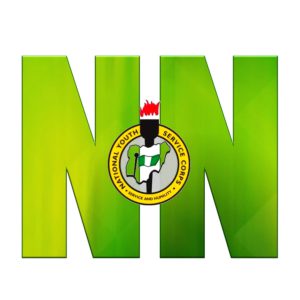The National Youth Service Corps (NYSC) is a one-year mandatory program for Nigerian graduates to serve the country. After completing your university or polytechnic education, you are required to join this program.
One of the first steps is your posting to a state. The state you are posted to will determine your overall NYSC experience. This article will cover the best NYSC states for posting and how much each state pays as state allowance.
What is NYSC Posting?
NYSC posting is the process of assigning corps members to different states across Nigeria. There are 36 states and the Federal Capital Territory (FCT), Abuja, available for posting. The NYSC aims to promote unity by posting corps members to states different from their states of origin. Once posted, you will go through a 3-week orientation camp before being assigned to your Place of Primary Assignment (PPA).
Why is State Selection Important?
Choosing the right state can have a huge impact on your NYSC experience. Factors to consider include:
- Safety: Some states are more secure than others.
- Cost of Living: How affordable is food, housing, and transportation?
- Job Opportunities: Are there opportunities for skill acquisition and networking?
- State Allowance: Some states pay extra allowances to corps members on top of the federal government’s monthly N33,000.
- Standard of Living: Some states offer a more comfortable lifestyle with good amenities and services.
Best NYSC States for Posting
1. Lagos State
-
Reasons to Choose Lagos:
Lagos is Nigeria’s economic capital, filled with job opportunities and vibrant city life. It’s ideal for networking and building a professional career. -
State Allowance:
Lagos State does not pay an additional state allowance, but many private companies offer good pay to corps members. -
Cost of Living:
Lagos is expensive compared to other states, but the exposure and opportunities may be worth it.
2. Federal Capital Territory (FCT), Abuja
-
Reasons to Choose Abuja:
Abuja offers a safe and peaceful environment with good infrastructure. It’s also home to several government agencies and international organizations. -
State Allowance:
Corps members posted to Abuja may not get a state allowance, but many federal institutions offer additional stipends. -
Cost of Living:
Abuja is one of the most expensive cities in Nigeria, but it’s also very comfortable.
3. Akwa Ibom State
-
Reasons to Choose Akwa Ibom:
Known for its hospitality, Akwa Ibom offers a serene environment and beautiful beaches. -
State Allowance:
Akwa Ibom pays corps members N5,000 monthly. -
Cost of Living:
The cost of living in Akwa Ibom is moderate, making it an attractive state for corps members.
4. Kano State
-
Reasons to Choose Kano:
Kano is one of the largest cities in Northern Nigeria and has a rich cultural heritage. -
State Allowance:
Kano State pays corps members N15,000 monthly. -
Cost of Living:
Kano has a relatively low cost of living, and the state allowance is quite generous.
5. Rivers State
-
Reasons to Choose Rivers:
Rivers is a major oil-producing state with plenty of job opportunities. -
State Allowance:
Rivers State pays corps members N15,000 monthly. -
Cost of Living:
The cost of living is high, but the state allowance can help cover expenses.
6. Ogun State
-
Reasons to Choose Ogun:
Ogun is close to Lagos and has good infrastructure. The state is known for its educational institutions and industrial estates. -
State Allowance:
Ogun State pays corps members N5,000 monthly. -
Cost of Living:
The cost of living is moderate, and it’s a good state for those who want to be close to Lagos without the high expenses.
7. Enugu State
-
Reasons to Choose Enugu:
Enugu is known for its peaceful environment and rich cultural heritage. -
State Allowance:
Enugu State pays corps members N3,800 monthly. -
Cost of Living:
The cost of living is moderate, and the state is a popular choice for corps members.
8. Cross River State
-
Reasons to Choose Cross River:
Cross River is home to the famous Calabar Carnival and has a reputation for being one of Nigeria’s cleanest states. -
State Allowance:
Cross River pays corps members N5,000 monthly. -
Cost of Living:
The cost of living is moderate, and there are plenty of recreational activities.
9. Kaduna State
-
Reasons to Choose Kaduna:
Kaduna is a major hub in Northern Nigeria and has a good mix of urban and rural experiences. -
State Allowance:
Kaduna pays corps members N3,000 monthly. -
Cost of Living:
Kaduna has a relatively low cost of living, making it a popular choice.
10. Osun State
-
Reasons to Choose Osun:
Osun is known for its cultural festivals and serene environment. -
State Allowance:
Osun pays corps members N5,000 monthly. -
Cost of Living:
The cost of living is low, making Osun an affordable choice for corps members.
How Much Do NYSC States Pay?
Here is a quick summary of the state allowances mentioned above:
- Akwa Ibom – N5,000
- Kano – N15,000
- Rivers – N15,000
- Ogun – N5,000
- Enugu – N3,800
- Cross River – N5,000
- Kaduna – N3,000
- Osun – N5,000
Note: Some states may change their allowances or stop payments without prior notice.
Conclusion
Choosing the right state for your NYSC service is crucial. Factors like safety, cost of living, job opportunities, and state allowance play a big role.
States like Lagos, Abuja, and Rivers offer plenty of opportunities, while states like Kano and Akwa Ibom provide generous allowances. Ultimately, it’s important to weigh your priorities before making a decision.
FAQs
Can I choose the state I want to be posted to?
No, NYSC posts corps members randomly. However, you can apply for relocation after camp if you have valid reasons like health issues or marriage.
Which state pays the highest NYSC allowance?
Currently, Kano and Rivers are among the states that pay the highest at N15,000 per month.
Is Lagos a good state for NYSC?
Yes, Lagos offers many job opportunities and networking possibilities. However, the cost of living is high, and there is no state allowance.
Can I be posted to my state of origin?
No, NYSC aims to promote unity by posting corps members to states other than their states of origin.
What happens if my state stops paying allowance?
If a state stops paying allowance, you will still receive the federal government’s monthly N33,000.
Choosing the right state for your NYSC service is an important step. Consider your priorities and make an informed decision for a rewarding experience.


